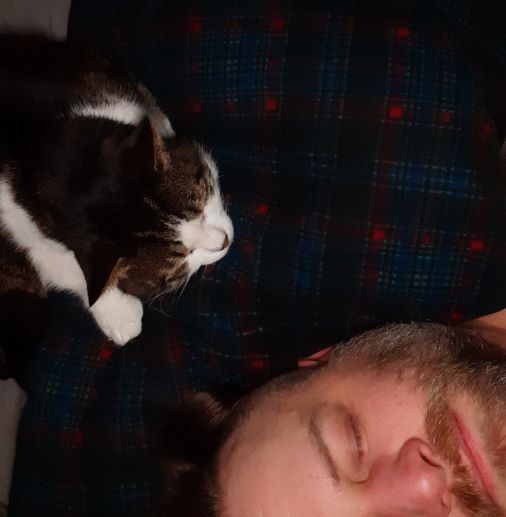I feel like I should probably talk about media monopolies more. The way corporations have managed to gain control of ever-larger portions of our entertainment media has caused all manner of problems, most of them for the very people who create the products those same corporations sell. In many ways, that’s traditional, right? Every capitalist company is in the business of exploiting its workers – extracting as much work as possible, for as little pay as possible. Part of that process, in publication, is control over intellectual property, and the use and abuse of legal teams to get and maintain that control. I’m writing about this now, because a good example has come up, along with a solution that I absolutely love.
Fables is a comic series published by DC Comics, and written by one Bill Willingham. I have never read any of them, but they’re apparently very good, so maybe I’ll have to change that. Since the original run, which ended in 2015, DC has apparently been doing spinoffs and games, with no regard for Willingham’s ownership of the intellectual property. Willingham himself is not a fan of current intellectual property law, but that doesn’t mean just letting corporations have their way when they abuse said law. The problem is, as I mentioned above, those corporations tend to have legal teams for just this purpose, which makes fighting them a daunting task. How much of your money, and how many years of your life are you willing to sacrifice, to just to stop corporate abuse of your work? For a lot of people, a fight like that isn’t worth it, and corporations count on that, knowing that the personal cost of a legal battle would never affect them. So, what? Does that mean we just have to let the corporations win?
Well, no. The long term solution, I think, is for the people in these industries to continue the organizing work they’ve already been doing, but Willingham has found a much easier and more immediate solution. Fables is no longer his intellectual property, and it doesn’t belong to DC Comics (owned by Warner Bros. Discovery), either. As of today, Fables, in its entirety, belongs to all of us:
As of now, 15 September 2023, the comic book property called Fables, including all related Fables spin-offs and characters, is now in the public domain. What was once wholly owned by Bill Willingham is now owned by everyone, for all time. It’s done, and as most experts will tell you, once done it cannot be undone. Take-backs are neither contemplated nor possible.
Willingham cites the potential cost, in years of his life, of trying to force DC to live up to its legal obligations (he’s 67), and I really appreciate his reasoning for this tactic:
Since I can’t afford to sue DC, to force them to live up to the letter and the spirit of our long-time agreements; since even winning such a suit would take ridiculous amounts of money out of my pocket and years out of my life (I’m 67 years old, and don’t have the years to spare), I’ve decided to take a different approach, and fight them in a different arena, inspired by the principles of asymmetric warfare. The one thing in our contract the DC lawyers can’t contest, or reinterpret to their own benefit, is that I am the sole owner of the intellectual property. I can sell it or give it away to whomever I want.
I chose to give it away to everyone. If I couldn’t prevent Fables from falling into bad hands, at least this is a way I can arrange that it also falls into many good hands. Since I truly believe there are still more good people in the world than bad ones, I count it as a form of victory.
This won’t stop DC from making Fables comics, shows, or anything else, but it does mean that they will never have exclusive ownership of them again, because literally anyone has the exact same right. Did you read these, get inspired, and write fanfiction? It’s now just as canon as anything under the DC label. Congratulations! Willingham’s press release, linked above, goes into greater detail on his own opinions about intellectual property law as it is, and as it should be, but I want to focus on his “what did DC do to deserve this?” section:
Q: What Exactly Has DC Comics Done to Provoke This?
Too many things to list exhaustively, but here are some highlights: Throughout the years of my business relationship with DC, with Fables and with other intellectual properties, DC has always been in violation of their agreements with me. Usually it’s in smaller matters, like forgetting to seek my opinion on artists for new stories, or for covers, or formats of new collections and such. In those times, when called on it, they automatically said, “Sorry, we overlooked you again. It just fell through the cracks.” They use the “fell through the cracks” line so often, and so reflexively, that I eventually had to bar them from using it ever again. They are often late reporting royalties, and often under-report said royalties, forcing me to go after them to pay the rest of what’s owed.
You recognize what this is, right? It’s wage theft. This is part of the tens of billions of dollars stolen from workers, by capitalists. This is how that theft is most often committed. They use deliberate incompetence to hold on to the money for a little bit longer, and to make it hard to keep track of what’s owed. When I lived in Somerville, I saw my landlord do this to his workers constantly. He’d forget to pay them, and then plead poverty and delay the payment (he owned about 75 other people’s homes), and then underpay, and when the worker objected, he’d argue about how much was owed. This is the same damned thing, done by a massive corporation, and you’d better believe they do it at a massive scale. Hell, it’s the same as Trump’s reputation for never paying people – this is a big part of how capitalists get so rich, and prevent those below them from improving their own lot in life.
More than that, DC tried to trick Willingham into giving them ownership over Fables, and when he called them out on it, they claimed they hadn’t read the contract. More weaponized incompetence, to disguise attempted theft. Putting it squarely in the hands of the public was a brilliant move.
At the same time, I can see why it was less than ideal for for Willingham. First, because it doesn’t prevent DC from doing more with Fables, and second because much as I dislike the fact, we live in a capitalist world, and we all need money to survive. That means that while it would be nice to be able to just create art and share it with the world, those who like doing so are forced to consider the hours put into that work, which could have been spent working for a wage. The system sucks, but opting out of it isn’t really an option. Willingham no longer has exclusive ownership either, and that’s not without its costs. In this case, however, it may not have been that difficult of a decision. He himself is still bound by contract not to do anything with that property, except through DC. They own his ability to use the intellectual property he technically owned, they just haven’t been paying him for its use. Remember that Frank Wilhoit quote?
Conservatism consists of exactly one proposition, to wit: There must be in-groups whom the law protects but does not bind, alongside out-groups whom the law binds but does not protect.
Capitalism has a very similar principle, where the “in-group” is the ruling class – capitalists – and the “out-group” is everyone else. It’s probably a big part of why conservatives like capitalism so much.
This isn’t a clear win for Willingham, but it is a strategic victory, and not just for him. His mention of asymmetrical warfare is one that I think we’d all do well to consider, because the class war is very far from symmetrical. The amount of power concentrated in the hands of the ruling class is probably greater than it ever has been, and failing to account for that would be, well, like negotiating your pay without the support of a union. Capitalists need workers, but the don’t need you, and one-on-one, they will destroy you.
So we don’t fight them one-on-one, and we don’t meet them on a battle field for “honorable combat”. This has never been a fair fight, and so we are under no obligation to fight fairly. Use the strengths we have, take advantage of opportunities as the arise, and if you can’t win a battle, maybe you can force a draw.




